Competency-Based Interviews
Competency-Based INTERVIEWS
REVISED EDITION
How to Master the Tough Interview Style Used by the Fortune 500s
Robin Kessler

Copyright 2012 by Robin Kessler
All rights reserved under the Pan-American and International Copyright Conventions. This book may not be reproduced, in whole or in part, in any form or by any means electronic or mechanical, including photocopying, recording, or by any information storage and retrieval system now known or hereafter invented, without written permission from the publisher, The Career Press.
COMPETENCY-BASED INTERVIEWS, REVISED EDITION
TYPESET BY EILEEN MUNSON
Cover design by Jeff Piasky
Printed in the U.S.A.
To order this title, plevase call toll-free 1-800-CAREER-1 (NJ and Canada: 201-848-0310) to order using VISA or MasterCard, or for further information on books from Career Press.

The Career Press, Inc.
220 West Parkway, Unit 12
Pompton Plains, NJ 07444
www.careerpress.com
Library of Congress Cataloging-in-Publication Data
Kessler, Robin, 1955
Competency-based interviews: how to master the tough interview style used by the Fortune 500s / by Robin Kessler. -
Rev. ed.
p. cm.
Rev. ed. of: Competency-based interviews. c2006.
Includes bibliographical references and index.
ISBN 978-1-60163-221-0 -- ISBN 978-1-60163-594-5 (ebook) 1. Employment interviewing. 2. Core competencies. 3. Self-presentation. I. Title.
HF5549.5.I6K47 2012
650.144--dc23
2012013332
This is for my mother,
with love and thanks.
Acknowledgments
As always, a huge thank you to everyone who helped with this book. I would, however, like to give a few people some special recognition.
To Paula Hanson: Thank you for doing the initial editing and providing advice when I came up against problems. Any kind of problem. And for hanging in as a good friend for a very long time.
To Steven Lait, graphic artist for Costco and the former editorial cartoonist for the Oakland Tribune and ANG Group, who drew the cartoons for this book: Thank you for doing great work and being the best editorial cartoonist on the planetas well as one of my favorite cousins.
Id like to thank the consultants Ed Cripe, Cybelle Lyon, Cara Capretta Raymond, Michael Friedman, Dr. Kay Lillig Cotter, and Ken Abosch for sharing your expertise, time, opinions, and personal competencies. Having the opportunity to talk with each of you helped me make this book considerably stronger.
To David Heath, Dessie Nash, Blake Nolingberg, Mindy Wertheimer, Erica Graham, Chip Smith, Kalen Phillips, Stephen Sye, Diane Schad Dayhoff, Mary Alice Eureste, and Bill Baumgardt: Thank you for being subject-matter experts in your professional areas and answering all my questions for the book.
To Ron Fry, Michael Pye, Adam Schwartz, Kirsten Dalley, Laurie Kelly-Pye, and the rest of the staff at Career Press: Thank you for doing a great job of making my words look good, the book look better, and being great to work with.
To my other friends and relatives: Thank you once again for putting up with my leaving early, not calling as often, and not being as available to go out to dinner, the movies, or anything else. Since this book is now finished, please call me.
Contents
Introduction
What can you do today to be a star at interviewing and improve your career? How can you get the offer you want from the organization you want to work for? How can you move forward in your career?
The first step is to think strategically. Why do publishers choose to offer on certain book proposals and not others? Why do certain products do especially well and others dont? How did Oprah become a star, and what does she do to make sure she stays a star? How can she be so good at interviewing, acting, and developing and publishing her magazine? What made Nelson Mandela from South Africa and Aung San Suu Kyi from Myanmar so admired worldwide that they both won Nobel Peace Prizes? Why did youor someone you knowget into a prestigious college? Why do certain people get selected for the best assignments and the best jobs, and what causes other qualified candidates to be rejected?
The answers to these questions are complex, but if you really think about it, there are three basic steps you need to take to improve your ability to get what you want.
What It Takes to Win
1. Learning what it takes to win is the first step.
2. Doing the things that it takes to win is the second step.
3. Recognizing that what it takes to win can changesometimes rapidlyis the third step.
____________________
The more quickly you identify how things are changing and adjust your approach, the more quickly you will be successful. Realistically, we need to expect changes. New tools, new approaches, and new strategies can cause decision-makers to make different decisions. If we adapt to these changes earlier than others, we increase our probability of winning. Thats all. Oprah may have strong artistic abilities, and Nelson Mandela and Aung San Suu Kyi have demonstrated exceptional political skills. All three are obviously more intelligent than the average person, both intellectually and emotionally. But they have also overcome major life challenges. Oprah has dealt with child abuse, Nelson Mandela was imprisoned for 27 years, and Aung San Suu Kyi was released in 2011 after 15 years of house arrest. Clearly, all three figured out what it took to get ahead in their fields, and have mastered staying ahead of the game as their environments changed. Mandela went on to become the president of South Africa from 19941999, and as of this writing, Aung San Suu Kyi is running for parliament in Myanmar (formerly known as Burma).
One of the key abilities that will help you manage your career is learning how to interview more effectively and convince the interviewer that you are the best candidate for the job. Interviewing well is critical if you want to be successful. So how can you take the three steps that it takes to win and apply them to interviewing? This book will show you how to be more successful by:
 Teaching you how to recognize the changes in interviewing that are being implemented at most sophisticated organizations.
Teaching you how to recognize the changes in interviewing that are being implemented at most sophisticated organizations.
 Explaining what todays interviewers are looking for.
Explaining what todays interviewers are looking for.
 Showing you how to emphasize how your competencies match the employers needs.
Showing you how to emphasize how your competencies match the employers needs.
 Developing a plan to ensure you perform well in every critical interview.
Developing a plan to ensure you perform well in every critical interview.
When systems change and grow, we need to be smarter than our competitors and recognize those changes as early as possible, the way Oprah and these Nobel Peace Prize winners have. If we arent aware, our own careers may be negatively affected. We need time to develop and adjust our strategy, because employers do periodically change the systems they use to select employees. If we dont change our approach, we will eventually become less valuable to our current employer, as well. We all need to take responsibility for actively managing our career, and that includes changing our strategy to respond to the changes introduced by higher-ups. As we become increasingly astute, we may be able to anticipate some of these changes and prepare for them.
Next page

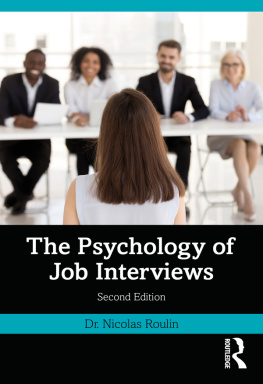
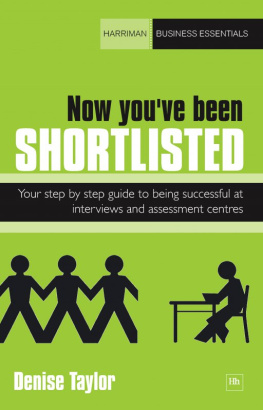
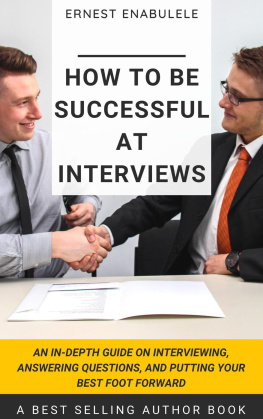
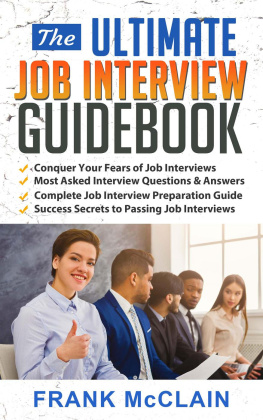
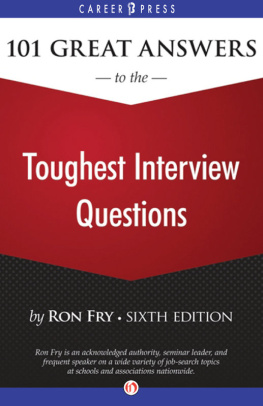
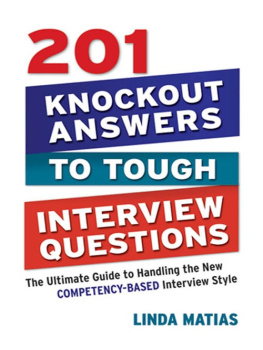
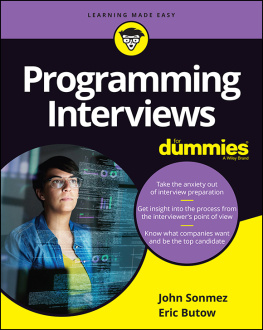
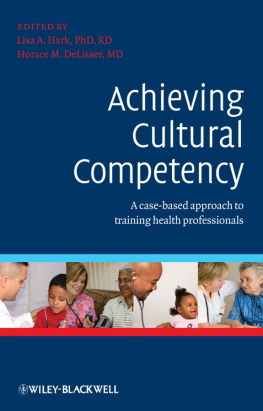


 Teaching you how to recognize the changes in interviewing that are being implemented at most sophisticated organizations.
Teaching you how to recognize the changes in interviewing that are being implemented at most sophisticated organizations.